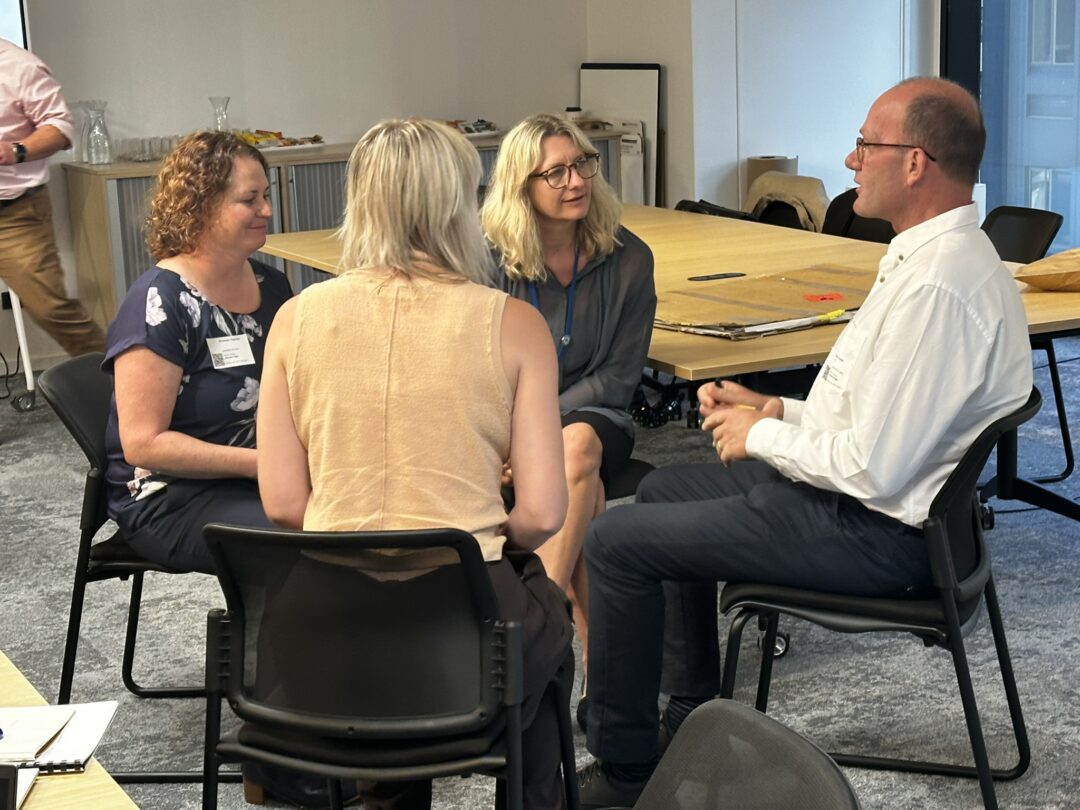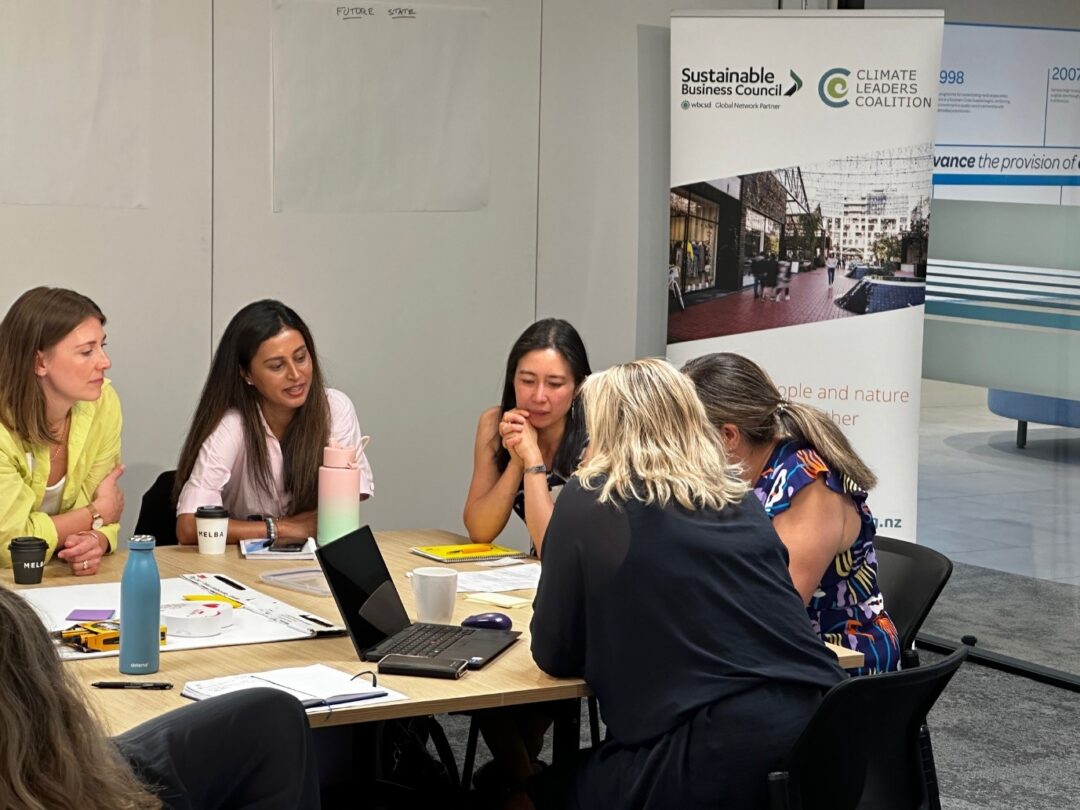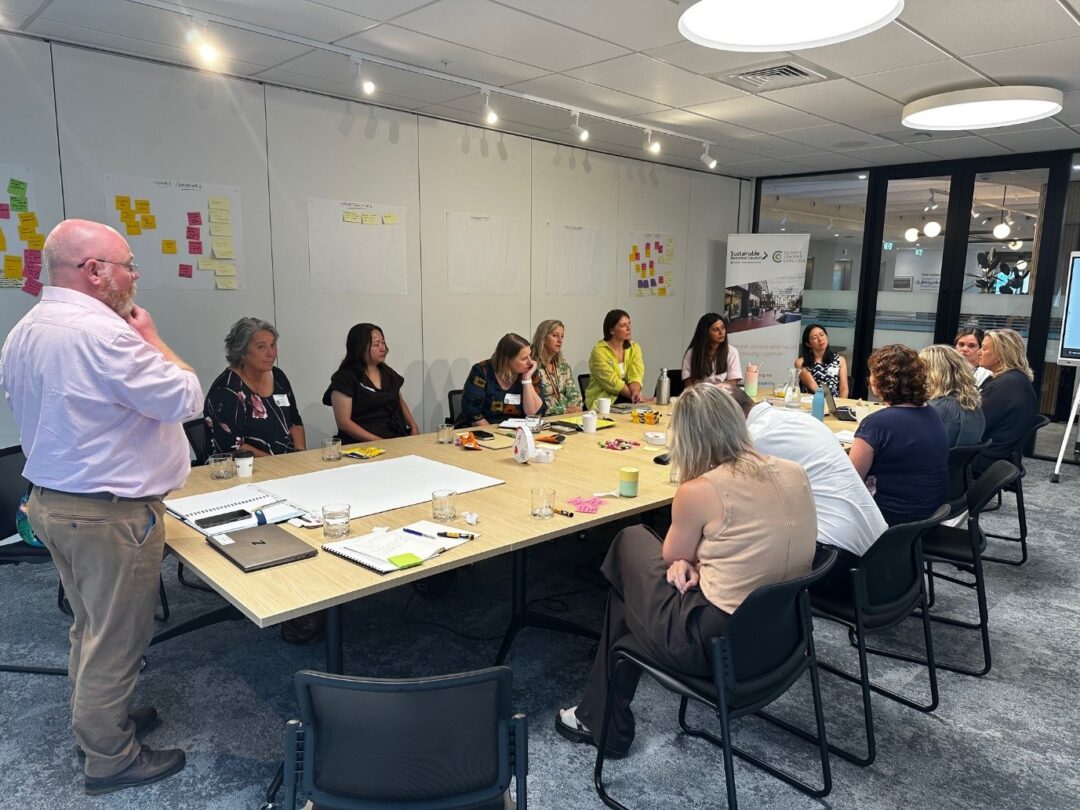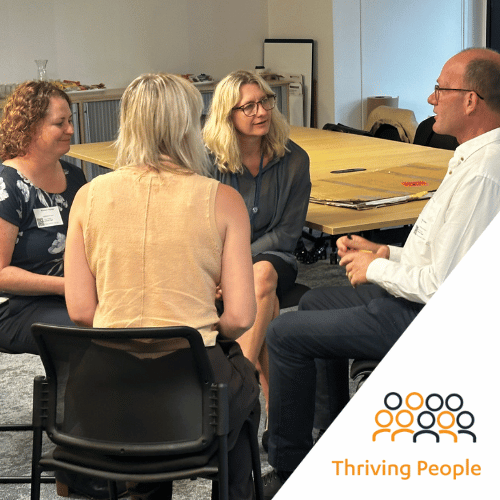Nāu te rourou, nāku te rourou, ka ora ai te iwi
I love this whakatauki as it talks to community, to collaboration and to a strengths-based approach. It acknowledges that everybody has something to offer, a piece of the jigsaw puzzle (and remember that puzzle is flat – no hierarchy, we are all in it together), and by working together we all flourish. This lies at the heart of what we are doing in Thriving People.
It’s been a busy start to the year for our Thriving People programme as we step up the activation of SBC’s flagship report on ‘Strengthening the ‘S’ in ESG’. Our focus for February was on community investment and impact, one of the three report recommendations.
We started with our latest online event: a kōrero on how to measure and maximise your impact. Read my key takeaways here. We then launched the first of our Thriving People case studies, which outlines Fonterra’s Doing Good Together framework for social impact and offers advice for others on the same journey.
Finally, we brought together the first of three working groups for each of those recommendations, this one aiming to mobilise more impactful ‘community investment’ by developing a shared aspiration and action plan. Thank you to the representatives from 11 SBC member businesses who participated, and a huge mihi to Southern Cross Healthcare for hosting us.
It was inspiring to see the connections, issues and aspirations shared by the group. So I thought I would share some key takeaways, next steps and how you can get involved.

An emerging shared aspiration
Our kōrero started by defining what great looks like. Two key measures of success for our action is that the ‘S’ has equal importance to the ‘E’ and ‘G’ among boards and executives, that our focus is outcome-driven, and that Te Tiriti and Mātauranga Māori are at the heart of our thinking and delivery.
Current state – raising the floor
Although participating businesses all have active community programmes, Community Investment is an emergent part of the ESG portfolio, and as such, is not well understood within most businesses.
To increase impact, a mindset shift is required, and especially so from boards and ELT, to understand the value of Community Investment, gain buy-in and prioritise it as an integral component of the business rather than a ‘nice to have’.

Challenges to success
A commonly held challenge across the working group was having insufficient and unsecured resourcing – both in terms of time and budget, as well as a limited ability to meaningfully engage with Boards and ELT.
Delivering on a shared aspiration
The group has already begun setting out a shared aspiration and action agenda to mobilise more impactful community investment, which will be workshopped further in March.

Next steps
Insights, learnings and actions from the group will be shared and scaled the across wider SBC network via the in-person Thriving People networking event series, the next of which is scheduled for 3 April.
I am currently working with Trevor Johnston (The Warehouse Group) to finalise plans to convene our next working group in March which will activate our flagship report recommendations on focus area #2 (Supply chains). Thanks to all our members who have confirmed their participation – I will be in touch shortly with an invitation and agenda.
Feedback sought
We recently launched our new case study series, showcasing Fonterra’s community investment programme. We would love to know:
- Is this useful/valuable?
- Do you want us to do more of these?
Watch out for Pānui on 14 March when we will be launching our second case study showcasing the Warehouse Group’s approach to tackling the challenge of ethical sourcing.
Finally, more and more SBC members are using our assessment tool to understanding their organisation’s maturity, identify steps for improvement, and track their action against benchmarks.

